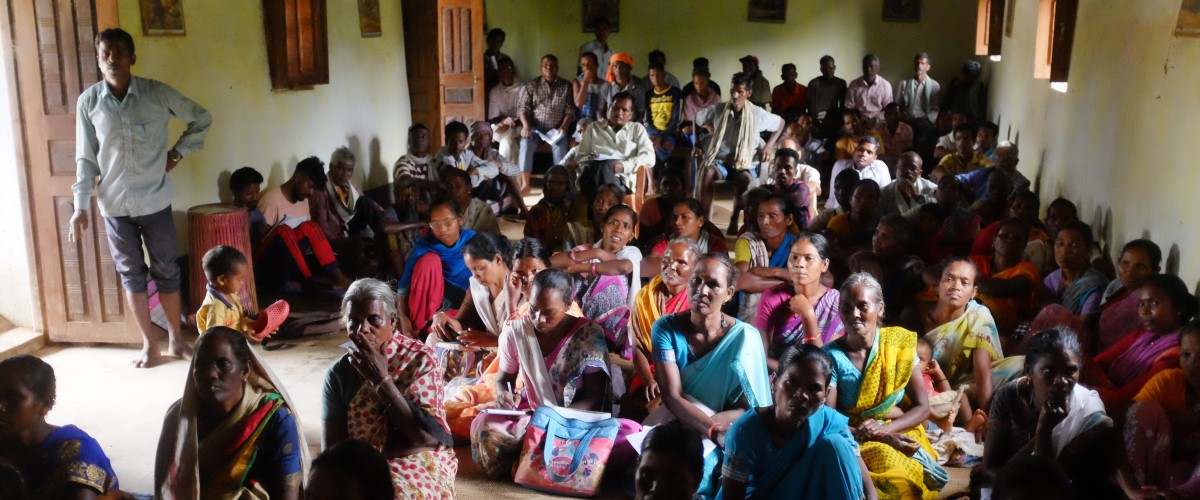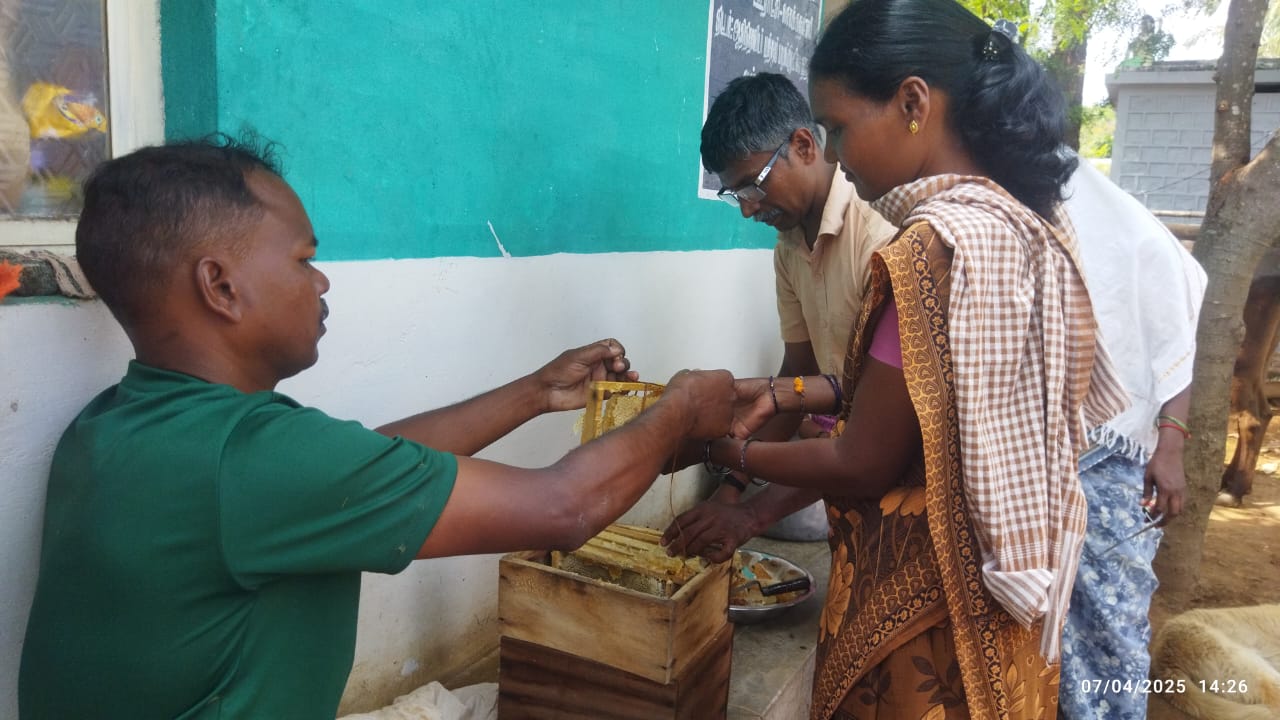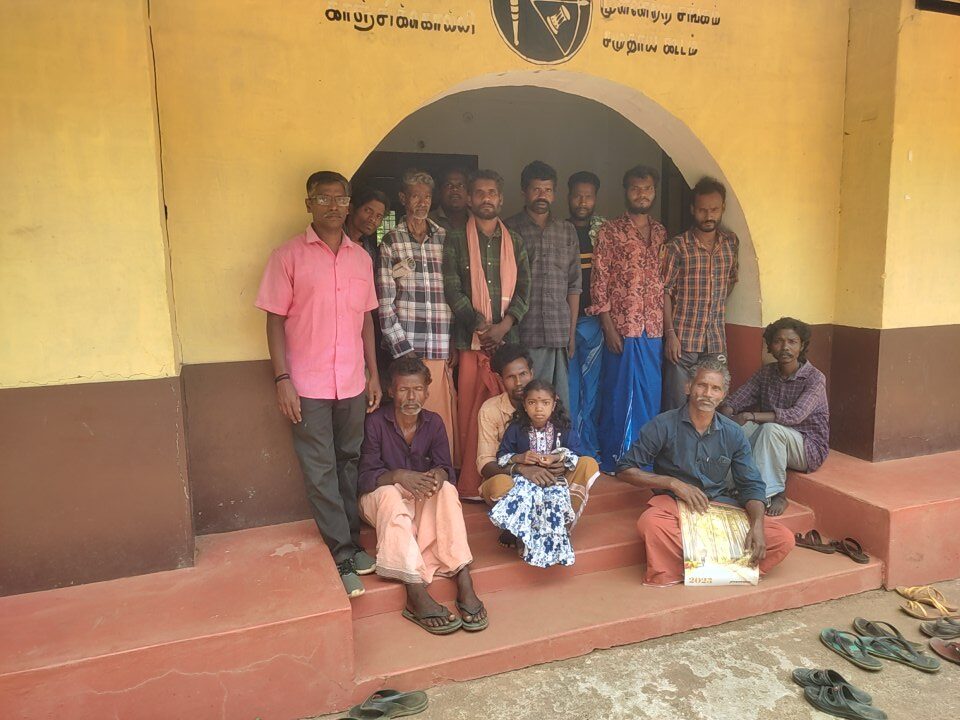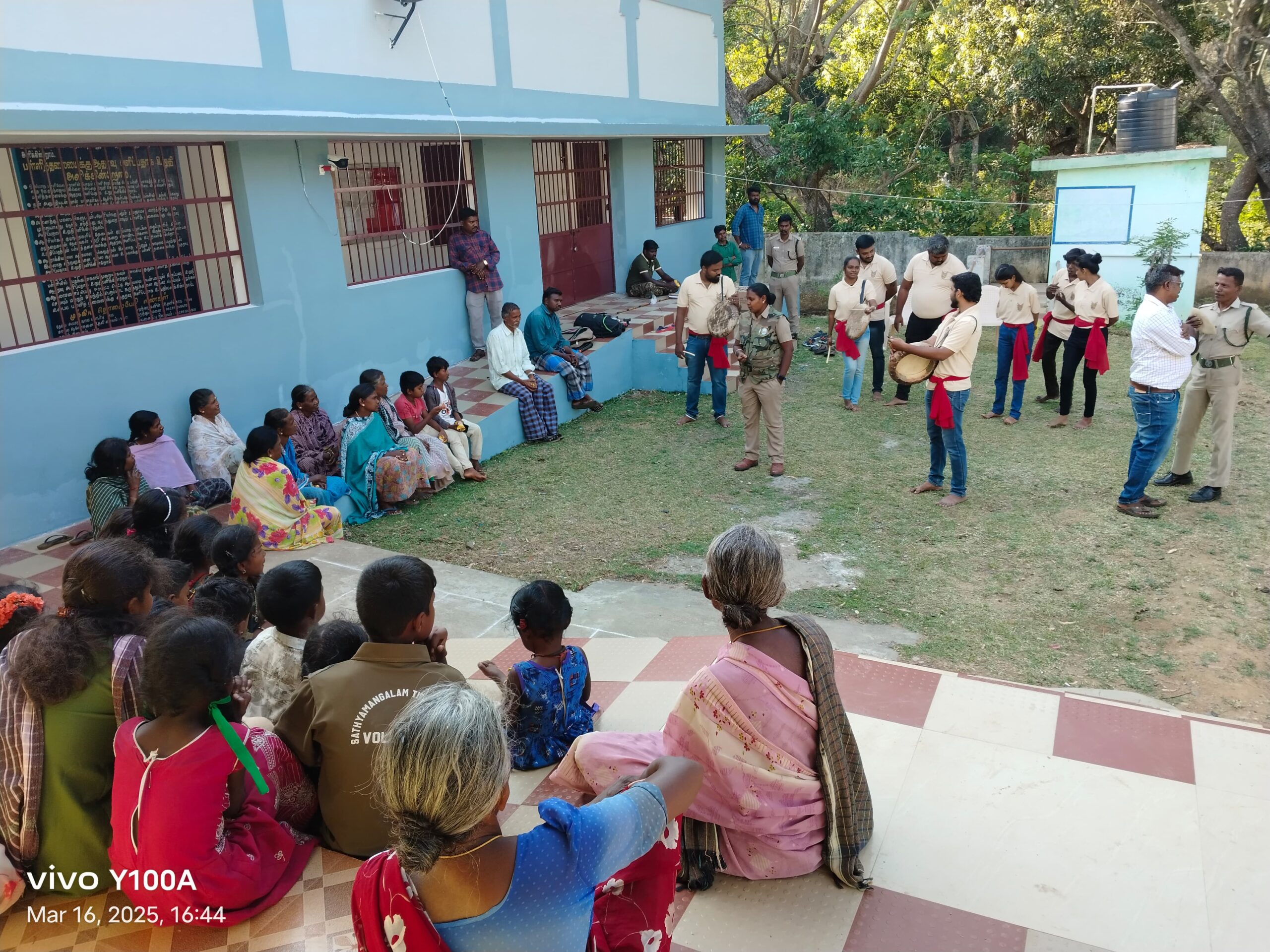September 15, 2023
By Jyoti Patali
Consultant – Eastern India
An awareness and training session on making organic fertilisers and pesticides was organised at the community centre at Aksi village, Latehar district, Jharkhand. The training was conducted by Soumik Banerjee, another consultant with the Eastern India project, and engaged with community fellows, self-help group members and participants from five villages: Aksi, Chetma, Bhitar Chetma, Tisiya and Goyara. Sanjeeta and Sandeep Lakra both are Eastern India community fellows supported by Keystone’s Networks and Alliances programme. They are working in these villages and organised the training. A total of 108 participants attended the training programme.
Training began with a welcome song performed in Sadari language with traditional instruments. The song created a harmonious atmosphere for the day’s activities. After this, the Pradhan (Head of Panchayat) of Aksi raised some questions for reflection on the use of chemicals in agriculture and the need to acknowledge the incline in healthcare issues in the village and its impact on future generations. He appealed to the participants to take ownership of this reality, and implement the learnings from the training.
Soumik Banerjee started the session by discussing about traditional seeds richness from the tribal community. Ten years ago, their abundance was far higher than today: there were once 150 varieties of traditional seeds from Godda region, and around 100 seeds from Santhal region, according to study. Also, around 4.5 lakh seed varieties of crops, millets and vegetables are preserved in Delhi’s NBPGR (National Board of Plant Genetic Resources). Our ancestors invented many of these varieties. He highlighted the ancestral wisdom of inventing several domestic crop varieties from a single wild species. Since the gren revolution, large food corporations with profit in mind generally focus on increasing production, and not on maintaining nutrition, which is having adverse effects on public health.
Mixed cropping is another practice that was discussed during the training. Forests, in their natural state, are remarkable ecosystems that thrive without human intervention. Diverse ecosystems have evolved mechanisms for controlling pests, and even evolved diseases that keep insect populations in check. In contrast, monoculture agriculture involves the cultivation of a single crop over a large area. The loss of predator-prey relationships and absence of diverse plant species leave monoculture fields more vulnerable to pest infections. To address these issues, it is essential to consider mixed cropping which promotes biodiversity within agriculture landscape. By doing so, we can move towards more resilient agriculture systems that reduce the dependency on chemical pesticides and promote healthier ecosystems.
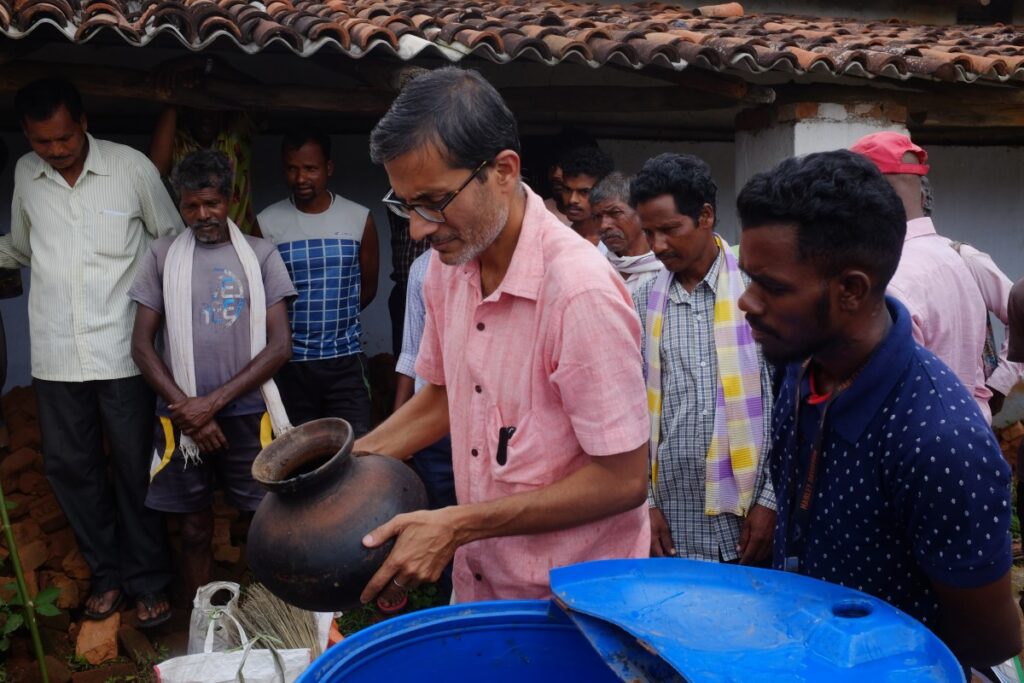
The importance of soil health was emphasized during the session. Soil contains billions of microorganisms, including bacteria, fungi and other microbes that play a vital role in maintaining soil health and supporting plant growth. Soumik highlighted how organic fertilisers are safe for these microorganisms, and vermicompost boosts the soil bacteria and overall soil health. This was followed by practical demonstration on the preparation of two organic fertilisers, jeev amrit and ghan jeev amrit and an organic pesticide paanch patta akra/five leaf extract.
These organic fertilisers make use of locally available ingredients like cow dung, cow urine, jaggery, besan or chickpea flour, mud from termite mounds and water. In addition, a 200-litre drum, jute sacks and a broom to scatter the preparation. Soumik demonstrated the preparation for one acre of land. jeev amrit takes around three to five days to prepare and should be used within 15 days. It can also be used to prepare another organic fertiliser – ghan jeev amrit, which is a mixture of cow dung and jeev amrit, and takes two to three days to prepare, and can be stored for six months. All participants enthusiastically took part in the preparation of the fertilisers.
The organic pesticide paanch patta akra or five leaf extract involved the use of any a minimum of three to five toxic leaves that either livestock don’t eat or which release milk when crumbled. This pesticide takes three to five days to prepare and should be used fresh as it loses its potency if stored. The ideal time to spray this mixture on plants is in the evening in the absence of strong winds and rain. All kinds of insects can be kept under control with this pesticide, and it should be sprayed every 15 days.
Kuwanri Lakra, a farmer and self-help group member from Aksi, shared her learnings from the training. She emphasized the significance of learning how to create organic fertilisers from locally available materials. This knowledge enables the community to reduce their dependency on the market for expensive chemical fertilisers, making farming more affordable. Anuj Lakra, a farmer from Chetma village, raised a vital and practical question; how can we transition from chemical to organic farming?
Soumik ended the day with a discussion on how these fertilisers are far more cost-effective than their chemical counterparts as they depend primarily on locally available ingredients with the 20 drum probably being the only item the farmers need to purchase, but even for this an old container could be repurposed. More importantly these organic fertilisers don’t negatively impact the soil in the long run unlike chemical fertilisers.
The event concluded with a voted of thanks from the Pradhan (Head of Panchayat) of Aksi, who urged the participants to experiment with what they had learned in their own areas and build on it to promote and support the organic agriculture movement in their regions.

